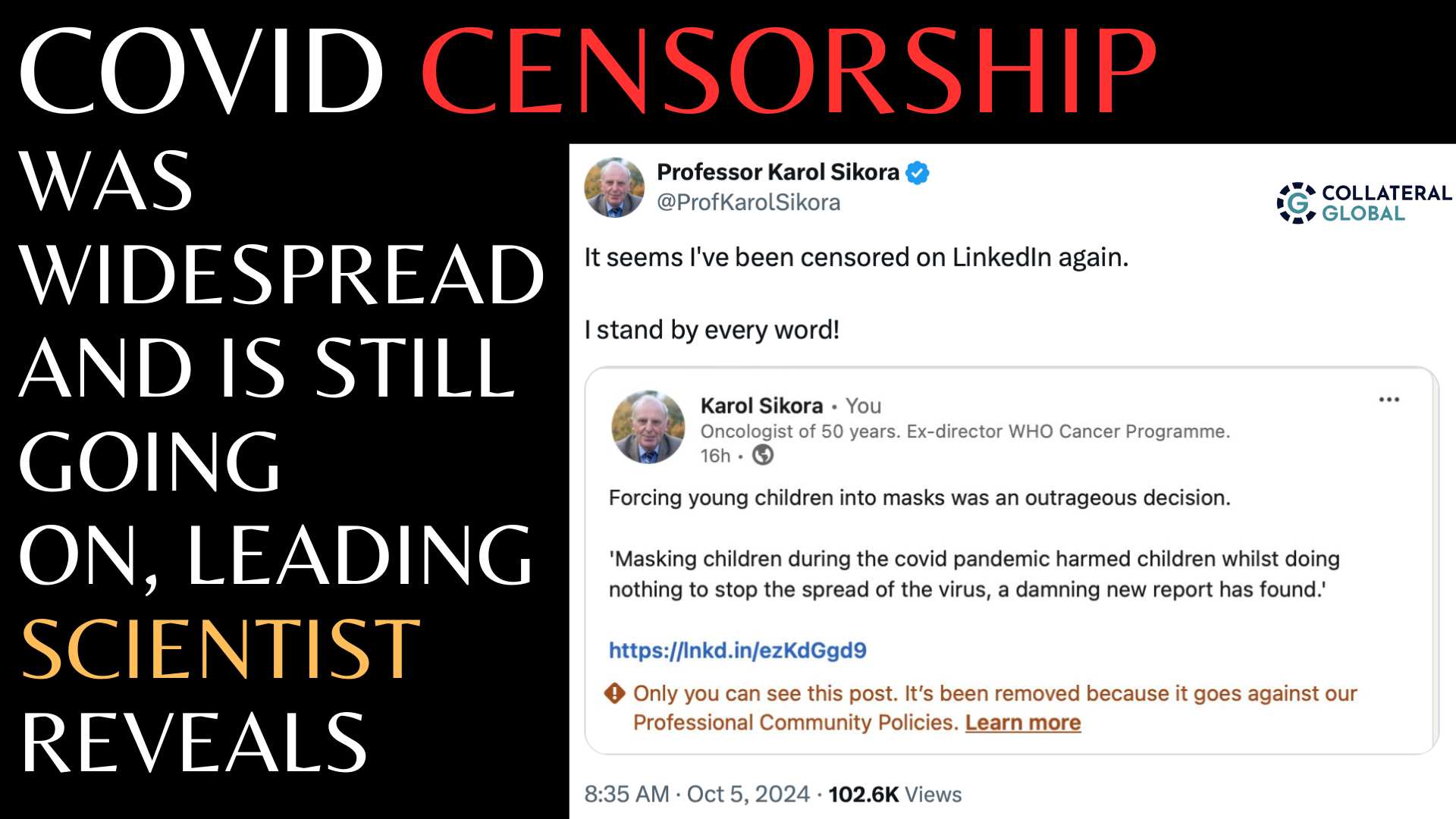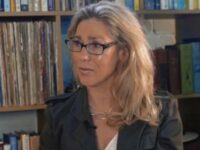Covid censorship was widespread and is still going on, leading scientist reveals
Scientific censorship surrounding Covid was “widespread, unprecedented” and still goes on today, a leading cancer expert has revealed.

Professor Karol Sikora, former cancer advisor to the World Health Organisation, talked to Collateral Global after the social media platform LinkedIn deleted his post about a scientific study about the harms of masking children. Professor Sikora had added his own comment to the research which stated: “Forcing young children into masks was an outrageous decision.”
LinkedIn removed his post – which had been linked to a write up of the research by Collateral Global – with a warning that it violated its “Professional Community Policies.”
LinkedIn declined to comment, but its website states posts deemed “unsafe, untrustworthy, abusive or unprofessional” will be deleted with “repeated” offenders losing their LinkedIn accounts altogether.
Speaking to Collateral Global Professor Sikora said:
“My post was deleted, along with a polite message basically saying; “this is against the rules of LinkedIn.”
Professor Sikora, whose career has spanned over five decades, said this was just one example of ongoing widespread scientific censorship that he had never encountered before.
He said:
“For the first time in a long career in medicine and medical science I’ve seen censorship. Many of my colleagues and a lot of other people were censored (on Covid). The two key areas for censorship were what we call the non pharmacological interventions for Covid, the masking, the distancing. The second area was the whole vaccination program, whether it was necessary to vaccinate children.”
He highlighted another example when, during the pandemic, Facebook removed a cancer lecture he had given.
Professor Sikora recalled:
“Normally, they put the lectures on Facebook, and because it was about cancer, and it was during the pandemic, and I talked about the problems of lockdown resulting in late stage presentation of cancer it triggered an algorithm at Facebook and it was removed. It was put back within 24 hours, but only after I objected.”
Professor Sikora believes censorship around Covid is linked to a desire for control among members of authority:
“I got the feeling people enjoyed the whole idea that you could control society a bit. The politicians enjoyed it. The public health people enjoyed it. I don’t think the police enjoyed it – chasing people with a cup of coffee sitting on a park bench is not exactly serious police work – they would much rather chase criminals.”
But he also believes censorship has been harmful:
“There has been a criticism of anybody that questioned the Covid narrative. And I could see lockdown and the consequences of what happened to the NHS and the slogan “Save the NHS, Stay at Home” meant cancer patients didn’t get diagnosed early. And as we all know, the later the stage of the cancer, the more it spreads, the poorer the outcome, however good the treatment.”
He added:
“You have to let people speak, let people have extreme views. And there are people out there with quite extreme views. Some of my colleagues have extreme views, much worse than me, in terms of towing the party line, both in cancer and in various other disciplines, about masking, about vaccines and so on. We have to allow them to express their opinion. Why not? You’re allowed to express the opinion about the treatment of breast cancer, for example, whether we use chemotherapy for or after – it’s a reasonable topic for discussion. Let’s discuss some of these and then we come to a consensus. The consensus may change with the time and with the disease. Openness is the key for the future.”
